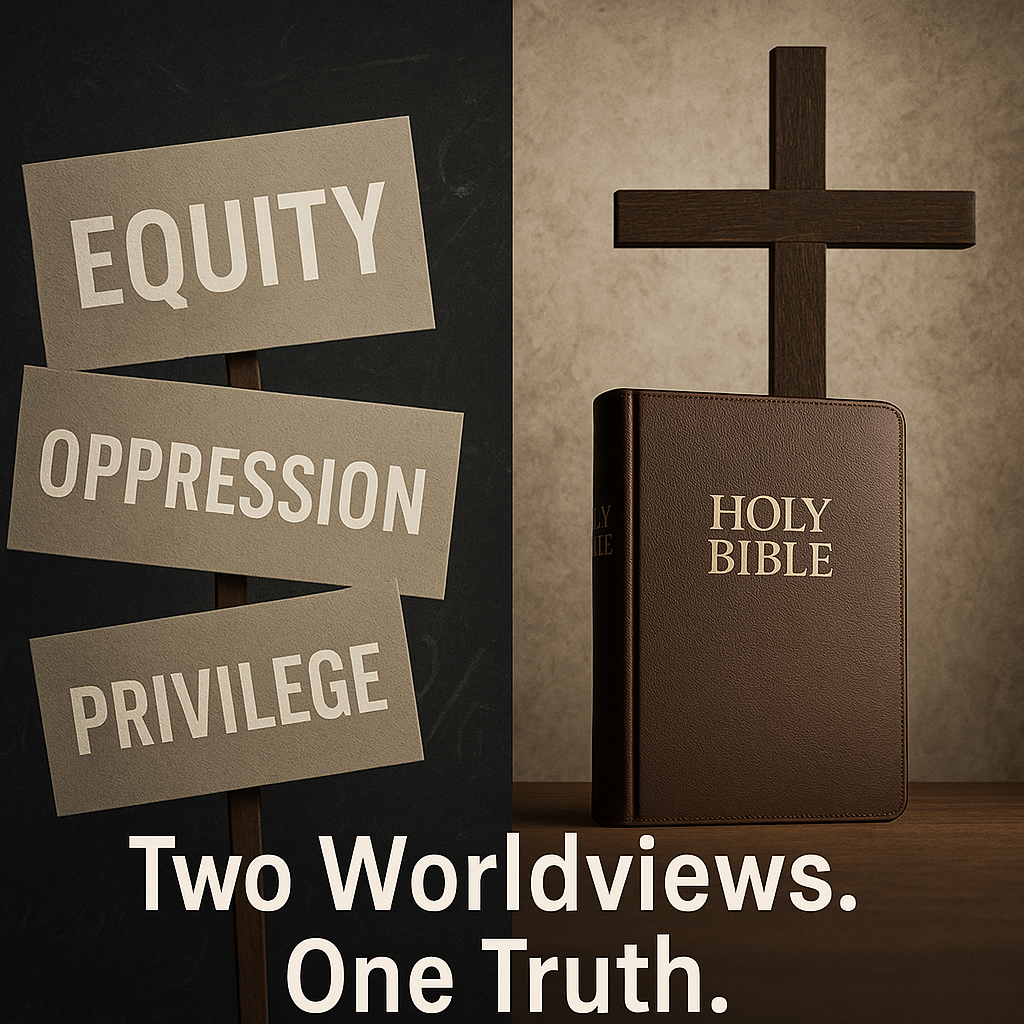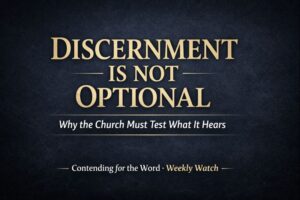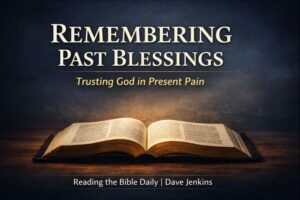⏱️ Estimated Reading Time: 4 min read
The Collision Between Critical Theory and Biblical Christianity
What is Critical Theory, and should Christians embrace it?
This is a question more churches are now facing, not from the margins of culture, but from within. Critical Theory has quietly moved from academia into corporate boardrooms, media platforms, public education—and even seminaries and pulpits. Many believers, seeking to uphold justice and compassion, have embraced elements of this worldview without fully realizing what it is or how it conflicts with biblical Christianity.
At its core, Critical Theory is not simply a sociological method or an analysis tool—it is a comprehensive worldview. It interprets the world through the lens of power dynamics, identifying people as either oppressors or oppressed, based on categories like race, gender, sexuality, and class. According to Critical Theory, truth is not objective but shaped by one’s lived experience. Language, law, religion, and social structures are often viewed as oppressive tools used by dominant groups to maintain control. Liberation, it argues, comes through activism and the dismantling of these systems.
This framework is not merely academic. It influences how people see justice, morality, and even salvation. In this way, Critical Theory functions as a rival gospel, promising redemption not from sin, but from systemic oppression.
Critical Theory, CRT, and Intersectionality
Closely related to this is Critical Race Theory (CRT), which applies Critical Theory specifically to race and claims that racism is embedded in all institutions and systems. Another offshoot is intersectionality, which teaches that individuals who belong to multiple oppressed identity groups (e.g., a black, LGBTQ woman) hold greater moral authority and insight than those with more privileged identities. These ideas reject biblical anthropology, which teaches that all humans are made in God’s image (Genesis 1:27), and they undermine the unity believers share in Christ (Galatians 3:28).
Where Christianity and Critical Theory Collide
The incompatibility between Critical Theory and Christianity becomes especially clear when we examine what each teaches about foundational truths:
| Critical Theory | Biblical Christianity |
|---|---|
| People are classified as oppressors or oppressed | All are sinners in need of grace (Romans 3:23) |
| Truth is defined by lived experience | God’s Word is objective and unchanging (John 17:17) |
| Justice is equity of outcomes and power redistribution | Justice is righteousness, impartiality, and truth (Micah 6:8; Proverbs 17:15) |
| Encourages bitterness, activism, and division | Calls for reconciliation and forgiveness in Christ (2 Corinthians 5:18–19) |
| Salvation is liberation from oppressive systems | Salvation is deliverance from sin and death (Romans 6:23) |
While Critical Theory uses moral-sounding language—justice, equity, liberation—it redefines these terms and divorces them from the Bible. It replaces biblical categories with cultural ones, undermining the sufficiency of Scripture and leading many into error.
Why Are Christians Drawn to It?
For many, the appeal lies in a sincere concern for justice and compassion. Christians rightly want to oppose racism, care for the marginalized, and seek what is good. But in a culture where secular ideologies dominate the narrative, believers may unintentionally conflate biblical justice with social justice ideology. Add to this the growing cultural pressure in academic institutions, ministries, and social media, and it’s easy to see how confusion spreads.
But the church must define justice the way God does—not the way the culture does. Scripture calls us to pursue righteousness, uphold truth, and extend mercy in Christ’s name. These are not negotiable values. They are rooted in God’s unchanging character and Word.
A Better Foundation
Christians don’t need Critical Theory to care about injustice. We already have a better foundation: a biblical worldview rooted in the creation, fall, redemption, and restoration storyline of Scripture. From Genesis 1–3 to the cross of Christ, we are shown what justice, grace, and reconciliation truly mean. Our call is not to promote identity politics but to proclaim Christ crucified—the only true path to peace and unity.
Critical Theory is not a neutral tool. It is a competing worldview—one that distorts sin, redefines justice, and offers a false hope. If we are to be faithful to Christ and His Word, we must reject Critical Theory and instead view the world through the lens of Scripture.
Recommended Resources
- Check out Contending for the Word on YouTube.
- Check out Contending for the Word Q&A on Servants of Grace.
Dave Jenkins is happily married to his wife, Sarah. He is a writer, editor, and speaker living in beautiful Southern Oregon. Dave is a lover of Christ, His people, the Church, and sound theology. He serves as the Executive Director of Servants of Grace Ministries, the Executive Editor of Theology for Life Magazine, the Host and Producer of Equipping You in Grace Podcast, and is a contributor to and producer of Contending for the Word. He is the author of The Word Explored: The Problem of Biblical Illiteracy and What To Do About It (House to House, 2021), The Word Matters: Defending Biblical Authority Against the Spirit of the Age (G3 Press, 2022), and Contentment: The Journey of a Lifetime (Theology for Life, 2024). You can find him on Facebook, Twitter, Instagram, Youtube, or read his newsletter. Dave loves to spend time with his wife, going to movies, eating at a nice restaurant, or going out for a round of golf with a good friend. He is also a voracious reader, in particular of Reformed theology, and the Puritans. You will often find him when he’s not busy with ministry reading a pile of the latest books from a wide variety of Christian publishers. Dave received his M.A.R. and M.Div through Liberty Baptist Theological Seminary.




